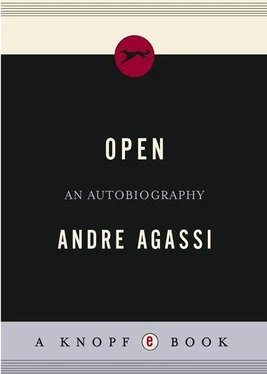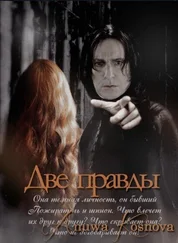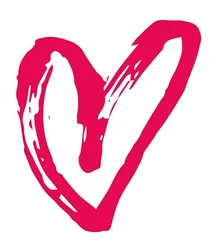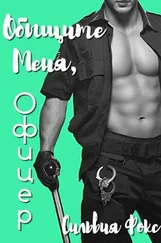Unknown - i a3f9967826fa0ec9
Здесь есть возможность читать онлайн «Unknown - i a3f9967826fa0ec9» весь текст электронной книги совершенно бесплатно (целиком полную версию без сокращений). В некоторых случаях можно слушать аудио, скачать через торрент в формате fb2 и присутствует краткое содержание. Жанр: Старинная литература, на английском языке. Описание произведения, (предисловие) а так же отзывы посетителей доступны на портале библиотеки ЛибКат.
- Название:i a3f9967826fa0ec9
- Автор:
- Жанр:
- Год:неизвестен
- ISBN:нет данных
- Рейтинг книги:5 / 5. Голосов: 1
-
Избранное:Добавить в избранное
- Отзывы:
-
Ваша оценка:
- 100
- 1
- 2
- 3
- 4
- 5
i a3f9967826fa0ec9: краткое содержание, описание и аннотация
Предлагаем к чтению аннотацию, описание, краткое содержание или предисловие (зависит от того, что написал сам автор книги «i a3f9967826fa0ec9»). Если вы не нашли необходимую информацию о книге — напишите в комментариях, мы постараемся отыскать её.
i a3f9967826fa0ec9 — читать онлайн бесплатно полную книгу (весь текст) целиком
Ниже представлен текст книги, разбитый по страницам. Система сохранения места последней прочитанной страницы, позволяет с удобством читать онлайн бесплатно книгу «i a3f9967826fa0ec9», без необходимости каждый раз заново искать на чём Вы остановились. Поставьте закладку, и сможете в любой момент перейти на страницу, на которой закончили чтение.
Интервал:
Закладка:
In December 1987 the desert turns unseasonably cold. The blackjack dealers wear Santa hats. The palm trees are strung with lights. The hookers on the Strip wear Christmas orna-ments for earrings. I tell Perry I can’t wait for this new year. I feel strong. I feel as if I’m starting to get tennis.
I win the first tournament of 1988, in Memphis, and the ball sounds alive as it leaves my racket. I’m growing into my forehand. I’m hitting the ball through opponents. Each one turns to me with a look that says, Where the hell did that come from?
I notice something on the faces of fans too. The way they watch me and ask for my autograph, the way they scream as I enter an arena, makes me uncomfortable, but also satisfies something deep inside me, some hidden craving I didn’t know was there. I’m shy—but I like attention. I cringe when fans start dressing like me—but I also dig it.
Dressing like me in 1988 means wearing denim shorts. They’re my signature. They’re synonymous with me, mentioned in every article and profile. Oddly, I didn’t choose to wear them; they chose me. It was 1987, in Portland, Oregon. I was playing the Nike International Challenge and Nike reps invited me up to a hotel suite to show me the latest demos and clothing samples. McEnroe was there, and of course he was given first choice. He held up a pair of denim shorts and said, What the fuck are these?
My eyes got big. I licked my lips and thought, Whoa. Those are cool. If you don’t want those, Mac, I’ve got dibs.
The moment Mac set them aside, I scooped them up. Now I wear them at all my matches, as do countless fans. Sportswriters murder me for it. They say I’m trying to stand out. In fact—as with my mohawk—I’m trying to hide. They say I’m trying to change the game. In fact I’m trying to prevent the game from changing me. They call me a rebel, but I have no interest in being a rebel, I’m only conducting an everyday, run-of-the-mill teenage rebellion. Subtle distinctions, but important. At heart, I’m doing nothing more than being myself, and since I don’t know who that is, my attempts to figure it out are scattershot and awkward—and, of course, contradictory. I’m doing nothing more than I did at the Bollettieri Academy. Bucking authority, experimenting with identity, sending a message to my father, thrashing against the lack of choice in my life. But I’m doing it on a grander stage.
Whatever I’m doing, for whatever reasons, it strikes a chord. I’m routinely called the savior of American tennis, whatever that means. I think it has to do with the atmosphere at my matches. Besides wearing my outfits, fans come sporting my hairdo. I see my mullet on men and women. (It looks better on the women.) I’m flattered by the imitators, embarrassed, thoroughly confused. I can’t imagine all these people trying to be like Andre Agassi, since I don’t want to be Andre Agassi.
Now and then I start to explain this in an interview, but it never comes out right. I try to be funny, and it falls flat or offends someone. I try to be profound, and I hear myself making no sense. So I stop, fall back on pat answers and platitudes, tell journalists what they seem to want to hear. It’s the best I can do. If I can’t understand my motivations and demons, how can I hope to explain them to journalists on deadline?
To make matters worse, journalists write down exactly what I say, while I’m saying it, word for word, as if this represented the literal truth. I want to tell them, Hold it, don’t write that down, I’m only thinking out loud here. You’re asking about the subject I understand least—me. Let me edit myself, contradict myself. But there isn’t time. They need black-and-white answers, good and evil, simple plot lines in seven hundred words, and then they’re on to the next thing.
Eighteen years old, wearing a frosted mullet and denim shorts, my first signature look
If I had time, if I were more self-aware, I would tell journalists that I’m trying to figure out who I am, but in the meantime I have a pretty good idea of who I’m not. I’m not my clothes. I’m certainly not my game. I’m not anything the public thinks I am. I’m not a showman simply because I come from Vegas and wear loud clothes. I’m not an enfant terrible, a phrase that appears in every article about me. (I think you can’t be something you can’t pronounce.) And, for heaven’s sake, I’m not a punk rocker. I listen to soft, cheesy pop, like Barry Manilow and Richard Marx.
Of course the key to my identity, the thing I know about myself but can’t bring myself to tell journalists, is that I’m losing my hair. I wear it long and fluffy to conceal its rapid departure.
Only Philly and Perry know, because they’re fellow sufferers. In fact Philly recently flew to New York to meet with an owner of Hair Club for Men, to buy himself a few toupees. He’s finally given up on the headstands. He phones to tell me about the astonishing variety of toupees the Hair Club offers. It’s a hair smorgasbord, he says. It’s like the salad bar at Sizzler, only all hair.
I ask him to pick one up for me. Every morning I find a little more of my identity on my pillow, in my sink, in my drain.
I ask myself: You’re going to wear a hairpiece? During tournaments?
I answer: What choice do I have?
AT INDIAN WELLS, in February 1988, I blaze my way to the semis, where I meet Boris Becker, from West Germany, the most famous tennis player in the world. He cuts an imposing figure, with a shock of hair the color of a new penny and legs as wide as my waist. I catch him at the peak of his powers, but win the first set. Then I lose the next two, including a hard, tough third. We walk off the court glowering at each other like rutting bulls. I promise myself I won’t lose to him the next time we meet.
In March, at Key Biscayne, I face an old schoolmate from the Bollettieri Academy, Aaron Krickstein. We’re often compared to each other, because of our connection with Nick and our precocious skills. I’m up two sets to none and then wear out. Krickstein wins the next two sets. As the fifth set starts I’m cramping. I’m still not where I need to be, physically, to reach the next level. I lose.
I go to Isle of Palms, near Charleston, and win my third tournament. In the middle of the tournament I turn eighteen. The tournament director rolls a cake out to center court, and everyone sings. I’ve never liked birthdays. No one ever took note of my birthday when I was growing up. But this feels different. I’m legal, everyone keeps saying. In the eyes of the law, you’re a grown-up.
Then the law is an ass.
I go to New York City, the Tournament of Champions, a significant milestone because it’s a clash of the top players in the world. Once more I square off against Chang, who’s developed a bad habit since we last met. Every time he beats someone, he points to the sky. He thanks God—credits God—for the win, which offends me. That God should take sides in a tennis match, that God should side against me, that God should be in Chang’s box, feels ludicrous and insulting. I beat Chang and savor every blasphemous stroke. Then I take revenge on Krickstein. In the final I face Slobodan Zivojinovic, a Serb better known for his doubles play. I beat him in straight sets.
I’m winning more often. I should be happy. Instead I’m uptight, because it’s over. I’ve enjoyed a triumphant hard-court season, my body wants to keep playing on hard courts, but clay season is starting. The sudden switch from one surface to another changes everything. Clay is a different game, thus your game must become different, and so must your body. Instead of sprinting from side to side, stopping short and starting, you must slide and lean and dance.
Familiar muscles now play supporting roles, dormant muscles dominate. It’s painful enough, under the best of circumstances, that I don’t know who I am. To suddenly become a different person, a clay person, adds another degree of frustration and anxiety.
Читать дальшеИнтервал:
Закладка:
Похожие книги на «i a3f9967826fa0ec9»
Представляем Вашему вниманию похожие книги на «i a3f9967826fa0ec9» списком для выбора. Мы отобрали схожую по названию и смыслу литературу в надежде предоставить читателям больше вариантов отыскать новые, интересные, ещё непрочитанные произведения.
Обсуждение, отзывы о книге «i a3f9967826fa0ec9» и просто собственные мнения читателей. Оставьте ваши комментарии, напишите, что Вы думаете о произведении, его смысле или главных героях. Укажите что конкретно понравилось, а что нет, и почему Вы так считаете.






